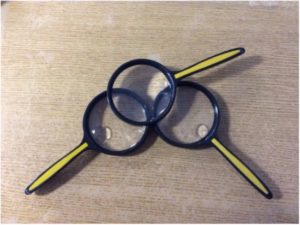Introducing worldviews as part of studying religion and belief
30 November, 2021, Dawn Cox
This year we are trialling a new approach to the start of year 7 RE. In my teaching career I have tried several approaches including looking at why we study RE and have never been happy with them. This year I created a new scheme that asks the enquiry question ‘How do we study religion and belief?’
We see students for one hour a week, so time is very tight, and I proposed to my colleague that we trial using a booklet with students. This is a great time saver as students don’t have to write titles each lesson and it’s easy to refer to page numbers which is the same for all of them. I have also found that when exploring a new approach it helps to organise my ideas and share them with my colleague as I’ve had to create and sequence the learning in the booklet.
The booklet pulls together the different ways we can study religion and belief and the things that we look at. One part of this approach involves introducing students to worldviews.
We start by thinking about our own personal worldview. We are clear that this is about how their own views have been developed over time (and will continue to develop) rather than being their specific view on something.
We have used two short clips to support this. The Theos ‘Nobody stands nowhere’ clip https://www.youtube.com/watch?v=AFRxKF-Jdos and this ‘What is your worldview?’ clip. https://www.youtube.com/watch?v=VXnSE0uvwzM

Interestingly, I have found a very small number of students have struggled to grasp this concept. It is very abstract and requires a conceptual understanding of themselves that some students cannot conceive. A couple of my students have replied ‘I don’t have a worldview’ or ‘My view hasn’t changed’. This kind of self-knowledge is a challenge for a small minority of students and colleagues that teach students with some types of SEN may find this more common.
To help students with this abstract concept I chose to use the metaphor of a magnifying glass; to help students understand that our personal worldview is how we ‘see’ things. I have used some ‘big questions’ to help them to understand how their worldview works and then we work together to unpick where our views may have developed from.
 I have bought several magnifying glasses to add to the explanation. This has helped students to understand that we all have different personal worldviews as I hold them up when explaining each individual view. It also helps to illustrate other worldviews. I have also shown how these lenses can ‘cross over’ which illustrates how views can be ‘combined’. An example was when we were discussing ‘how did the world get here?’ Students came up with answers ‘God made it’ and ‘the Big Bang’. I held up a lens for each of these views and then crossed them over. For some students this was a new Christian worldview; that God created the Big Bang.
I have bought several magnifying glasses to add to the explanation. This has helped students to understand that we all have different personal worldviews as I hold them up when explaining each individual view. It also helps to illustrate other worldviews. I have also shown how these lenses can ‘cross over’ which illustrates how views can be ‘combined’. An example was when we were discussing ‘how did the world get here?’ Students came up with answers ‘God made it’ and ‘the Big Bang’. I held up a lens for each of these views and then crossed them over. For some students this was a new Christian worldview; that God created the Big Bang.

This has helped them to understand that it may be better for us to discuss the many views within a religion for example we discussed ‘Christianities’ as a better term to show that within Christianity there are many different interpretations.
It is interesting to see how their understanding of worldviews is shown in their explanations. Here are responses from two pupils:
“We can study religion and belief by looking at people’s worldviews and opinions. But before we start we need to understand how people get their personal worldview. You are not born in the world with our own opinions as you cannot understand anything yet. But over time as you grow up you start to develop your own worldview and beliefs as you are surrounded by many different influences like your parents and what they believe or your friends and even video games! If you are a religious person your religion may have a big impact on how you see the world as religions normally have quite a lot of sources of authority….”
Jude, Year 7
“We can study religion and belief by looking at our personal worldview. We have got our own worldviews from many things but these aren’t permanent. These worldviews can change throughout your life, for example, when you are younger your parents would be your main authority and sources of your opinions and beliefs but when you’re older you probably wouldn’t take as much notice of them”
Luke, Year 7